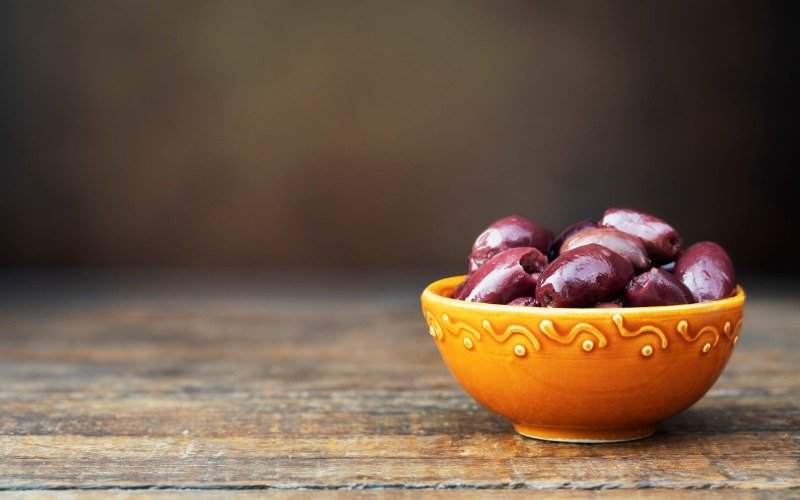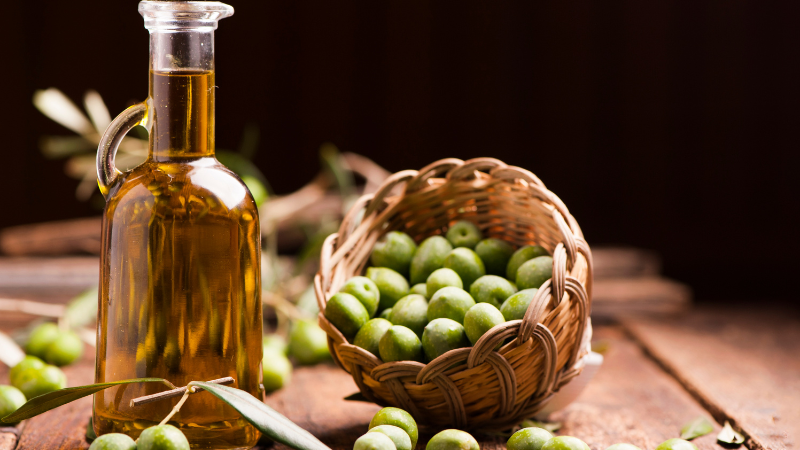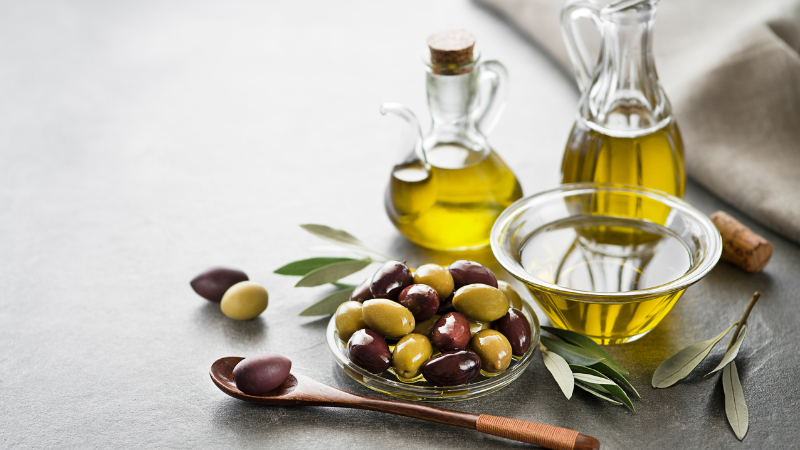Are Kalamata Olives Good For You? Health Benefits & Nutritional Value
Are Kalamata Olives Good For You?
Do you love olives? Do you prefer black olives or green olives? Even if you don’t like to eat them in their raw, fruit form, you probably enjoy the flavour-enhancement of olive oil in cooking or salads.
If you are like us, you will love them all but are maybe wondering if your love for the olive is healthy. One of the most popular varieties of black olives, and our favourite, is undoubtedly Kalamata olives. But are Kalamata olives good for you? We explore more in this post.
Interestingly, although they are considered black, they are actually a very deep purple colour.
We could fill a page with all the good qualities of Kalamata olives.
Even without going too in-depth, you will see from this post that yes, in moderation, Kalamata olives are very healthy.
Are Kalamata Olives a Healthy Snack?
Yes, Kalamata olives are good for you.
These products of the Olea Europaea variety of olive tree, originating from Greece, are a healthy snack as part of a calorie-controlled diet.
‘Superfoods’ is a term that many people are overusing, but when referring to Kalamata olives and Kalamata olive oil, justifying this title is very easy.
As you will see throughout this post, they are packed full of antioxidants, minerals, vitamins and healthy monounsaturated fats.
What are the nutritional benefits of Kalamata olives?
Let’s delve a little deeper, under the skin of these Greek table olives and look at the health and nutrition facts about what Kalamata olives contain.
- High in Monounsaturated Fat – You will probably be aware that Kalamata olives, like other varieties, have a high-fat content, when you consider their serving size. However, it is worth noting most of that fat is made up of monounsaturated fats, which are often referred to as healthy fats, with the rest being made up of polyunsaturated fats. In 4 tablespoons worth of Kalamata olives, there is around 2.7g of monounsaturated fats. It is believed these healthy fats can help reduce your cholesterol levels and in turn, the risk of stroke or heart attack.
- Phenolic compounds (like Oleocanthal) – Olives contain phenolic compounds, that not only provide their distinctive flavour to the olives but give them strong antioxidants and anti-inflammatory properties. As well as protecting your body from free radicals and toxins, they can also lower your risk of some cancers, heart disease and chronic inflammation.
- Calcium – Vital for healthy and strong teeth, gums and bones, calcium can also ensure your nerves and muscles, like the heart, are functioning properly.
- Copper – Copper is found in muscles and organs and has a crucial role in energy production.
- Iron – Red blood cells consist of around 70% iron in the form of haemoglobin, which transports oxygen from your lungs into your tissues.
- Vitamin A – although it is in its less absorbable form, Vitamin A in Kalamata olives is still important for your immune system, skin, and eyesight.
- Vitamin E – A fat-soluble vitamin, this is vital part of your antioxidant defence system, which means it helps reduce and eliminate free radical oxidative damage which is known to cause the body to age and eventually leads to chronic diseases.
- Polyphenols – full of antioxidants, these micronutrients are potentially beneficial if you are suffering from cardiovascular diseases, neurodegenerative disease, diabetes, weight management issues or digestion problems.
- Tyrosol – another potent antioxidant found in Kalamata olives, helps you by preventing LDL cholesterol from oxidation, which helps in reducing the risk of cardiovascular issues.
- Oleuropein – oleuropein is the component that gives olives their bitterness, but also offers strong performs as an antioxidant offering neuroprotective and cardioprotective properties.
- Oleanolic Acid – a phytochemical found in all grapes and olives, it has anti-tumour, anti-microbial and anti-inflammatory properties.
- Hydroxytyrosol – another polyphenol that helps prevent the oxidation of LDL cholesterol, while improving vascular functionality
- Gallic Acid – a type of phenolic acid, it has potent anti-oxidative capabilities. As well as cell protection, it does have anti-viral properties and can help improve your body’s insulin sensitivity.
- Oleic acid – is a monounsaturated Omega-9 fatty acid which has been associated with decreased LDL (bad) cholesterol and may increase HDL cholesterol (good). Oils high in Oleic acid may also reduce risk of heart disease and also reduce high blood pressure.
Do Kalamata Olives Have a Lot of Sodium?
While there is no denying that Kalamata olives are incredibly healthy, it is also worth noting they do contain some salt.
This is mostly due to the preservation, canning and curing process in salt water.
A serving of 4 tablespoons of Kalamata olives consists of around 240 to 250mg of sodium.
This serving size is still only between 11 and 16% of your RDA of sodium.
Just remember that’s one serving size and to factor in the sodium you get from the rest of your diet and foods you eat.
Another way to make sure you don’t get any more sodium or other preservatives than necessary, is to buy from a reputable olive oil company like Iliada (we are olive fanatics just like you!)
How Many Kalamata Olives Should I Eat a Day?
It would be wrong to suggest an exact number of Kalamata olives for you to eat during one day as everybody’s nutrition is different.
Because olives contain calories and a moderate sodium content, as with every food, we can’t recommend you eat an unlimited amount in a day (as tempting as this is, and as tasty as they are!).
Moderation is always important, as is being aware of what else you are eating to control your calories.
But as far as health benefits go, it would be a challenge for you to find a food or an oil that shares as many healthy compounds as the Kalamata olive!
We also challenge you to find tastier Kalamata Olives than our authentic products – if you’re a fellow olive lover, give us a try!


